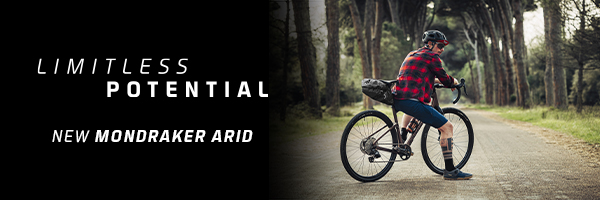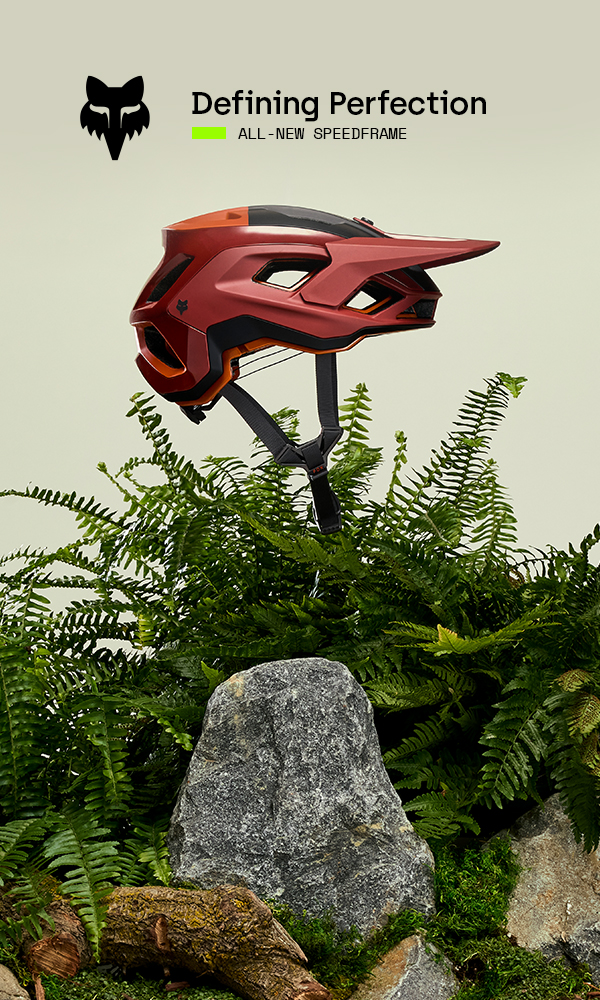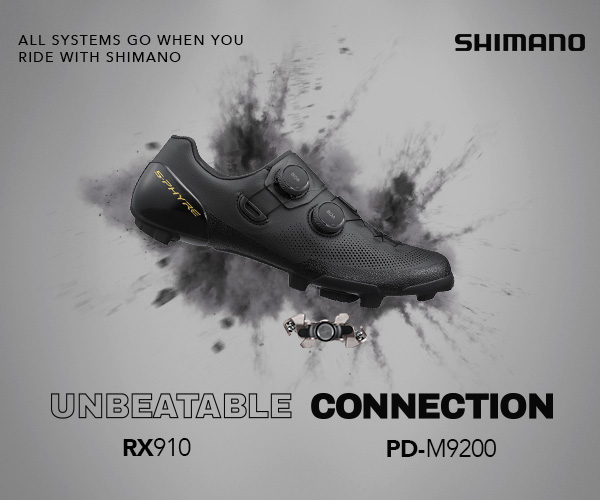Tomás Montes visits the workshop of the Madrid-based framebuilders at B-Bloque and Sombra Cycles to explore the state of metal bicycle-making in Spain. In a world driven by speed and scale, some stories unfold at a different pace – quietly, deliberately, and with hands in the work. What began as a personal journey has become a collaborative effort to bring purpose-built bicycles to those who value the story behind every miter. Take a look behind the welding hood…

Whenever I can, I try to make my trips serve multiple purposes. I recently traveled to Madrid for four days, with different objectives in mind for each day, all somehow related to the world of cycling. I took the metro into the center of the city to meet up with Pablo Hervás and Manolo Serrano of B-Bloque and Sombra Cycles.
Once we met, we took another bus out to their workshop. We didn’t ride there – partly my fault, as I was carrying too much gear to comfortably pedal. When we arrived, everyone got to work, and I started taking photos. Some urgent matters needed attention before we could sit down and talk. That moment would have to wait, as visitors began to show up throughout the morning. The funny thing was, they were all familiar faces. I was happy to see Sergio Pulido (a teammate at Rab) and Nano from Geosmina.
What was supposed to be a quick interview turned into a full day of overlapping conversations, laughter, interruptions, and even a spontaneous lunch break at a local neighborhood restaurant. A day that, almost unintentionally, captured the warm, down-to-earth essence of B-Bloque and Sombra Cycles.

From a Green Bike to a Craft
Pablo doesn’t come from a family of cyclists, nor from a family of entrepreneurs. He spent his childhood summers in Colmenarejo, a small town north of Madrid, where there wasn’t much to do, and social life inevitably revolved around riding bikes with the neighbor kids. Perhaps it was during those long, simple days that his love for bicycles began.
His first bike was a modest green one, bought at Pryca (a Spanish chain of hypermarkets that existed until 2000), and handed down from his sister. Nothing special, but enough to explore trails and build an early relationship with cycling. Years later, during the 1990s mountain bike boom, Pablo entered one of his early races riding a Marin Muirwoods. The experience was, in hindsight, very telling: he was quickly dropped from the group, got lost midway through the second lap, and had to be picked up by the race’s sweep motorbike. By the time he made it to the finish line, the awards ceremony was already over. Frustrated, he threw his bike to the ground – only to be met by his concerned but patient parents. Rather than scolding him for his poor result, they offered a more lasting lesson: that life isn’t just about winning, and that attitude matters just as much as outcomes.

Racing wasn’t his thing, but bicycles remained a part of his life, mainly as a means of transport.
Later on, in Madrid, he reconnected with a more urban cycling culture, again through friendships. It was during this time that he met Eduardo Gasca (“Dudu”), Larry, and Andrés Arregui – three key figures behind Ciclos Noviciado, a shop that played an important role in the fixed gear scene in the city. Although Pablo never owned a fixed gear bike and came to that world a bit later, those friendships became important anchors in his return to cycling.
Meanwhile, his academic and professional path had followed a very different direction: he studied Mechanical Product Development, which led to nearly two decades working at an engineering firm. There, he designed and assembled heavy machinery for the mining and cement industries. His job took him all over the world, moving between technical offices and industrial plants.
Until one day, after returning from a long assignment in Chile, he felt the time had come to change course. He felt the need to work with his hands again – to build something of his own, something tangible. And once again, bicycles became the thread that connected it all. Almost naturally, inevitably, he began his journey into the craft of building frames by hand.


The Birth of B-Bloque
Driven by the urge to work with his hands again, Pablo began searching for a space where he could experiment. At first, he shared a small workshop with two friends – just enough to get started and, without knowing it, lay the foundations for what would come next.
By that time, the physical shop of Ciclos Noviciado had closed. Dudu and Andrés had already transitioned to the name Ciclos La Universal, and eventually moved into a new workshop in Carabanchel, a neighborhood in Madrid. Pablo moved in with them. Andrés focused the space on framebuilding education, while Dudu steered the business toward an increasingly online model.
The atmosphere in the workshop was ideal for learning. Pablo used his days off from the engineering job to show up, observe, ask questions, and most importantly, get his hands dirty. It was in this environment that he built his first bicycles. One of them, a green bike that he openly admits was poorly made and didn’t ride well, still marked the first step in a new chapter.
That first bike needed a name. Some of his friends had nicknamed him “Pabloque,” and playing with that idea, B-Bloque was born – a playful twist that also carried a quiet but powerful message: be like yourself.
That first frame was followed by others, initially as a hobby, then as favors for friends, and gradually, more serious commissions started to arrive. In the workshop, Pablo also assisted Andrés with certain jobs, which helped him gain experience with all kinds of bicycles and clients.


Even if the name B-Bloque never fully convinced him (“It doesn’t have punch,” Pablo jokes), over the years he’s learned to embrace it. As with so many things in life, what matters isn’t the name, but the work behind it. Since 2016, the brand has grown organically, step by step.
For four years, Pablo balanced his full-time job at the office (from 8:00 to 17:30) with evenings and weekends at the workshop. In 2020, exhausted and more determined than ever to change his life, he decided to leave his job and dedicate himself fully to B-Bloque. With some savings set aside, he opened his workshop. It wasn’t a leap into the unknown: alongside his own orders, he had also started to receive production work from other brands, which brought valuable stability in the early years.

The Challenge of Framebuilding
Opening a workshop and building bicycles by hand doesn’t automatically lead to an easy life. Pablo realized this early on.
Making a living exclusively from custom framebuilding is a massive challenge, one reserved for a select few. Welding well is just the beginning – what’s also required is marketing, business acumen, patience… and even then, the audience that truly understands and values handcrafted bicycles remains a minority.
Pablo has stayed in this world thanks to a combination of factors. On the one hand, B-Bloque continues to receive orders from individuals seeking something unique and tailored to them. On the other, he’s earned the trust of several brands for whom he produces frames on a more or less regular basis. His name might not appear in their catalogs, but it stands behind many bikes that ride under different banners.
His workshop isn’t only a place for production. Every year, between two and four people join Pablo at his workbench to build their own frame under his guidance. It’s a side of the business that not only helps with income but keeps alive one of the parts of the job he enjoys most: teaching.

Pablo doesn’t limit himself to one kind of bicycle. He has built road, gravel, hardtail mountain bikes, cargo bikes, classic lugged builds – everything that comes through his hands is treated with the same respect and care. That said, he sometimes has to turn down projects that, due to their complexity or development time, just aren’t feasible in a small workshop.
In a delicate balance between craftsmanship, outsourced production, teaching, and personal projects, Pablo keeps both his passion and his workshop alive. It’s not an easy path, but it’s undoubtedly his.

The Origin of Sombra Cycles
As B-Bloque grew, Pablo began to notice something that kept circling in his mind: not everyone understands or seeks out the work behind a custom bicycle. For many people, commissioning a bespoke frame can be overwhelming: having to decide every detail, wait months, and accept the fair price of a handcrafted process. Not everyone is ready or able to go through that. The idea of launching a second brand had been on Pablo’s mind for a while: a more accessible line, more straightforward, that could bring his approach to bicycles to a wider audience.
The defining moment came during a group trip to the Surly campout in Montañas Vacías. Pablo had already sketched out the idea in his head, but that weekend gave him a concrete opportunity. Surya Bikepacking approached him for a quote to build a fleet of bikes for their rental project. While they ultimately didn’t go ahead with Pablo’s production proposal, they did trust him to lead the design and concept of the frames.
That process led to the first prototypes, which would later form the basis for a mountain bike model called the Cervus, built for exploration and long-distance riding. A third party carried out the first production run, and although Pablo wasn’t entirely happy with the results because he wasn’t able to oversee the fabrication, he decided to move forward.
Using the groundwork already done, he launched a small batch fully under his control. Almost unintentionally, Sombra Cycles was born: a new brand in the shadow of B-Bloque with its own identity and vision.

The Cervus sold well and served as a solid foundation. Later came the Grus, a gravel model sparked by the encouragement of Ernesto Pastor (Montañas Vacías), who gave Pablo the friendly nudge he needed:
“So, when are you launching the gravel bike?”
That push turned into Sombra’s second model.
Growth, however, didn’t come without hurdles. In 2023, just as Sombra Cycles was gaining visibility, Pablo’s Instagram account was hacked, taking with it much of the community he had worked so hard to build.
Instead of giving up, he decided to start again from scratch, applying the same philosophy that defines his workshop: patience, persistence, and hands-on work.

The Push from Manolo
The next big step for Sombra Cycles came with the arrival of Manolo Serrano, founder of Ciclos Helike, a bike shop and outfitter in Elche, Spain. Pablo and Manolo had known each other for a while, sharing a similar mindset and countless conversations about the bike world. Manolo had long been toying with the idea of launching his own handmade bike line, and Sombra presented the perfect chance to join forces rather than start from scratch. For Pablo, bringing in a partner meant giving the brand a fresh boost.
Manolo’s arrival brought several things at once: increased production capacity, new ideas, a more refined image, and – most importantly – a more solid structure to support Sombra Cycles’ growth. Until then, Pablo had been managing Sombra on his own, juggling it alongside B-Bloque and other commissioned work. But with Manolo on board, they were finally able to spend entire weeks focused solely on building bikes – stocking frames, streamlining processes, and preparing for the next big move: getting into select shops.
A significant part of the transformation came in the form of visual identity. The original branding – something Pablo had whipped up quickly when starting out – gave way to a cleaner, more polished look aligned with Sombra’s values. Without losing its handmade spirit, the brand gained clarity and reach.
When customers buy a Sombra, they’re talking to the people who designed, built, and tested the frame. That kind of closeness isn’t a limitation; it’s one of Sombra’s strongest selling points. In the future, if the brand grows, Pablo and Manolo may take a step back to let Sombra stand on its own. But for now, as they like to say, it’s important for customers to know the people behind the project.

Growing Without Losing the Essence
With Manolo’s support and weeks of intense production in the workshop, Sombra Cycles has entered a new phase. They now have enough stock not only for direct sales but also to start distributing through selected shops. Their strategy is clear: work with friendly shops that share their values. Shops where they can deliver bikes by hand, explain the project in person, and make sure that anyone selling a Sombra understands what goes into each frame.
This summer will be a key moment. Sombra will be present at events like Sea Otter Europe in Girona and Pedaleo in Switzerland. Their bikes will also be on display at Ciclosferia, supported by allies like Bikepackid and Velorecicla.


The big news is the relaunch of the Grus model, their gravel frame that has been updated with a few new features:
- Shorter and more agile geometry for livelier handling.
- Redesigned seat stays for improved rear-end responsiveness and comfort.
- UDH (Universal Derailleur Hanger) dropouts to make replacement hangers easy to find anywhere in the world.
- Additional mounts for bottles and bags to expand its adventure-ready setup.
And all of it while maintaining the same price as last year – something increasingly rare these days.
The Cervus will follow the Grus, and both models will be available with complete builds. The first Grus build will be simple and reliable, equipped with a 12-speed Shimano GRX groupset. Later, they plan to offer other build options to suit different riders and budgets.

One of the most valuable lessons from the past few months has been understanding their true production capacity. Knowing how many frames they can build in a set period allows them to plan more realistically and, if growth continues, consider new possibilities – maybe even relocating to a larger workshop outside Madrid, where the conditions would be more favorable.
Their short-term goal is simple: Keep growing without losing the essence, stay quick in responding to customers, maintain actual stock, pay attention to the details, and nurture a community that values bikes not just as objects, but as tools for moving through the world.

In the Shadow, But Growing
Maybe it’s just a coincidence – or maybe not – that this whole project is called Sombra (Spanish for “shadow”). In the shadow of a poorly built green bike. In the shadow of a craft learned without shortcuts. In the shadow of long afternoons welding in a small workshop in Madrid. But also in the shadow of a clear idea: to make bicycles that carry more than just kilometers.
B-Bloque and Sombra Cycles don’t compete in noise, flashy marketing, or industrial-scale production. They operate in a different realm – one shared by those who see the bicycle as a tool for adventure, discovery, and connection. By those who seek honest products, made by hands that know what they’re doing.
Today, with Pablo and Manolo at the helm, Sombra is starting to grow. Slowly, yes. But just like anything truly meaningful, it’s growing with intention, from the roots, and with eyes set far ahead.


















































































































































































